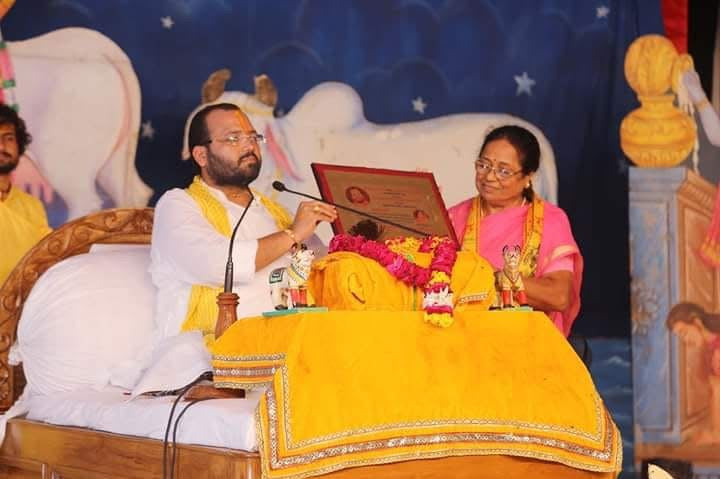
Echoes from the Haveli: A Tribute to Dr. Vandana Tailong and the Soul of Temple Music
Share
In a time when art is increasingly digitized, packaged, and commodified, some traditions stand still — stubborn in their sanctity, sacred in their structure. One such tradition is Haveli Sangeet — the devotional, soulful, and emotionally charged form of classical Indian music performed in temples, often in praise of Lord Krishna. It is a genre less spoken about, and even less understood, yet deeply embedded in the cultural and spiritual spine of India.
Heritage is not a concept of the past. It’s a living, breathing philosophy. And there is no better person to personify this than Dr. Vandana Tailong, a maestro of Haveli Sangeet, a custodian of its forgotten verses, and a lifelong devotee of its purpose — to offer music as a form of divine service.
Haveli Sangeet: Where Architecture Meets Acoustics, and Devotion Meets Discipline
Derived from the Persian word Haveli, meaning a grand and elegant residence, Haveli Sangeet was traditionally performed in the sacred spaces of temples built like havelis — acoustically resonant and intimately spiritual. It is here that bhakti (devotion), raga (melody), and shringar (aesthetic expression) blend into one.
Dr. Vandana Tailong’s journey into the world of Haveli Sangeet began in the sacred city of Mathura, where music wasn’t just taught — it was inherited, lived, and breathed. Raised in a household steeped in devotion and discipline, her early exposure to the Pushtimarg tradition shaped her musical path. Guided by revered gurus and immersed in temple acoustics, Dr. Tailong's training was as spiritual as it was scholarly. Her renditions did not aim to impress — they aimed to invoke, offering every note as a prayer rather than a performance.
A Life Committed To Preservation
Dr. Tailong’s musical footprint is expansive. From performing Dhrupad-Dhamar to composing for temple rituals, her body of work is a catalogue of India’s unrecorded music history. She spent decades teaching at institutions, performing across India and internationally, and more importantly, ensuring that Haveli Sangeet wasn’t relegated to a dusty chapter in some forgotten book.
Her research covered the lineage of great saint-poets like Surdas, Vallabhacharya, and Kumbhandas. She explored how Haveli Sangeet evolved over centuries, adapting to the socio-political changes while staying loyal to its devotional core.
From Mathura To The World
Through Dr. Tailong’s work, we see how Indian culture was never meant to be consumed passively. It is meant to be sung, danced, recited, and surrendered to. Her music served as both preservation and protest — an assertion that in an era of trends and reels, heritage is not entertainment. It is memory. And memory, when repeated, becomes legacy.

